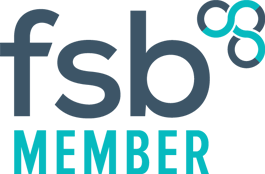In today’s fast-paced, digitally-driven world, the role of a virtual assistant (VA) has become increasingly crucial for businesses and entrepreneurs alike. Virtual assistants provide essential support by handling tasks that free up time for business owners to focus on strategic growth. However, not all virtual assistants are created equal. To stand out in this competitive field, certain skills are non-negotiable. Here are the essential skills every virtual assistant should have to succeed.
1. Exceptional Communication Skills
Clear and effective communication is the cornerstone of a successful virtual assistant. Since VAs often work remotely, the ability to articulate ideas and instructions through email, chat, or phone is vital. Miscommunication can lead to errors, misunderstandings, and inefficiencies, so a VA must be proficient in both written and verbal communication. This includes being able to listen actively, ask the right questions, and provide concise, accurate updates.
2. Time Management and Organisation
A virtual assistant’s day can be filled with a variety of tasks, from scheduling appointments to managing emails and social media accounts. This diversity requires excellent time management and organisational skills. A top-notch VA must be able to prioritise tasks, meet deadlines, and manage multiple projects simultaneously. Tools like calendars, project management software, and to-do lists are indispensable for staying on top of assignments and ensuring nothing slips through the cracks.
3. Technological Proficiency
In a digital-first role, being tech-savvy is non-negotiable. Virtual assistants should be proficient with standard office software such as Microsoft Office or Google Workspace, as well as communication tools like Slack, Zoom, or Microsoft Teams. Additionally, familiarity with project management platforms (e.g., Asana, Trello), social media management tools (e.g., Hootsuite, Buffer), and basic website maintenance (e.g., WordPress) can set a VA apart from the competition. As technology continues to evolve, a willingness to learn and adapt to new tools is equally important.
4. Problem-Solving and Critical Thinking
Virtual assistants often need to think on their feet and solve problems independently. Whether it’s troubleshooting a technical issue, finding a creative solution to a client’s request, or managing unexpected challenges, a good VA must be resourceful and quick to adapt. This requires strong critical thinking skills, the ability to analyse situations, and the confidence to make decisions when necessary. Being proactive and anticipating potential issues before they arise is also a valuable trait.
5. Discretion and Confidentiality
Virtual assistants are often privy to sensitive information, including business strategies, financial data, and personal details. Therefore, discretion and the ability to maintain confidentiality are paramount. A trustworthy VA understands the importance of handling information responsibly and respecting the privacy of their clients. This builds trust and fosters long-term professional relationships.
6. Customer Service Orientation
Many virtual assistants interact directly with clients, customers, or partners on behalf of their employers. A strong customer service orientation is essential, as it reflects directly on the business. This includes being courteous, patient, and responsive to queries, complaints, or requests. A VA with excellent customer service skills can help maintain positive relationships and enhance the client’s reputation.
7. Adaptability and Flexibility
The nature of work as a virtual assistant can be unpredictable, with tasks and priorities shifting on short notice. Adaptability and flexibility are therefore crucial skills. Whether it’s learning a new software programme, adjusting to a different time zone, or taking on a new type of task, a successful VA needs to be open to change and ready to adjust their approach as needed.
Conclusion
A virtual assistant’s role is diverse, demanding a broad skill set to effectively support clients and businesses. Exceptional communication, time management, and technological proficiency are foundational skills, while problem-solving, discretion, and customer service orientation help VAs stand out. Above all, adaptability and a commitment to continuous learning ensure that a virtual assistant can meet the ever-changing demands of this dynamic role. By mastering these essential skills, a VA not only provides invaluable support but also becomes a vital asset to any business.








